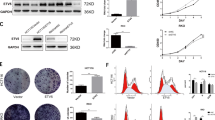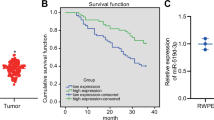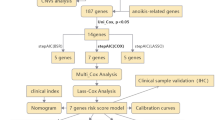Abstract
E2F-1 and p53 are sequence specific transcription factors that are intimately involved in the regulation of the cell cycle. In addition to their role in cell cycle control, both E2F-1 and p53 have been identified as tumor suppressors and mediators of apoptosis. We have shown previously that adenoviral-mediated E2F-1 overexpression induces efficient apoptosis in colon adenocarcinoma cells. Previous reports have suggested that E2F-1 and p53 cooperate to mediate apoptosis and therefore, in this study, we examined the efficacy of combination gene therapy using adenovirus vectors expressing E2F-1 and p53 in human colon adenocarcinoma cell lines, HT-29 and SW620 (both mutant p53). Cells were treated by mock infection or infection with adenoviral vectors expressing b-galactosidase (LacZ), E2F-1, p53 or a combination of E2F-1 and p53. IC25 concentrations of each virus were estimated and used for each treatment in order to detect any synergistic or cooperative effects on tumor cell death in the combination therapy. By 5 days post infection, E2F-1-overexpressing cells exhibited growth inhibition and approximately 40-50% cell death in both cell lines. Co-expression of p53 with E2F-1 abrogated E2F-1-mediated growth inhibition and cell death. Cell cycle analysis revealed that overexpression of E2F-1 resulted in an accumulation of cells in G2/M phase, while overexpression of p53 resulted in a G1 phase accumulation. However, co-expression of E2F-1 and p53 counteracted each other as fewer cells accumulated in G1 and G2/M when compared to either p53 or E2F-1 alone. Furthermore, co-expression of p53 with E2F-1 resulted in decreased levels of E2F-1 protein expression. Mechanistically, upregulation of the CDK inhibitory protein, p21(WAF1/CIP1), was demonstrated in HT-29 cells following overexpression of either E2F-1, p53 or the combination E2F-1/p53 therapy. However, in SW620 cells, only the cells infected with Ad-p53 alone or in combination resulted in upregulation of p21(WAF1/CIP1). These results suggest that p53 and p21(WAF1/CIP1) may cooperate to inhibit the expression and activity of E2F-1. In conclusion, combination adenoviral vector-mediated E2F-1 and p53 gene transfer was not therapeutically advantageous in this in vitro model of human colon adenocarcinoma.
Similar content being viewed by others
Article PDF
Author information
Authors and Affiliations
Rights and permissions
This is an Open Access article distributed under the terms of the Creative Commons Attribution Non-Commercial License (http://creativecommons.org/licenses/by-nc/3.0/) which permits unrestricted non-commercial use, distribution, and reproduction in any medium, provided the original work is properly cited.
About this article
Cite this article
Draus, J., Elliott, M., Atienza, C. et al. p53 gene transfer does not enhance E2F-1-mediated apoptosis in human colon cancer cells. Exp Mol Med 33, 209–219 (2001). https://doi.org/10.1038/emm.2001.35
Published:
Issue date:
DOI: https://doi.org/10.1038/emm.2001.35



